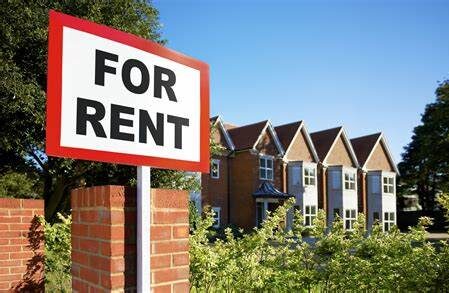Owning a vacation rental property can be a lucrative investment, but it also comes with unique risks and liabilities. Standard homeowners insurance is often insufficient for properties that are regularly rented to guests, which makes specialized insurance for vacation rentals essential. In this guide, we’ll cover the types of insurance available, the key coverages you need, and tips for selecting the best policy to protect your rental property.
Why Vacation Rental Insurance is Essential
Vacation rental properties face unique risks that standard homeowners insurance does not cover. When renting to guests, your property is exposed to higher levels of wear and tear, potential property damage, and liability risks if a guest is injured on-site. Furthermore, your insurance needs may vary based on the frequency and duration of rentals, as well as the location of your property.
Some major risks for vacation rental owners include:
- Guest Injuries: If a guest gets injured on the property, you may be liable for medical expenses.
- Property Damage: Regular turnover of guests increases the chance of accidental or intentional damage.
- Theft or Vandalism: Vacation rentals are often vacant, making them vulnerable to theft or vandalism.
- Loss of Income: Unexpected events, like a natural disaster, may render the property uninhabitable, resulting in lost rental income.
Having a tailored vacation rental insurance policy helps protect your investment and provides peace of mind, knowing you’re covered if something goes wrong.
Types of Insurance for Vacation Rentals
There are different types of vacation rental insurance policies available, each designed to cover various risks associated with renting your property. Here are the essential types of insurance coverage to consider:
Property Coverage
Property coverage is crucial for protecting the physical structure of your vacation rental and any personal belongings within it. This includes fire, storm damage, theft, vandalism, and accidental damage by guests. Most vacation rental insurance policies will cover the building itself, as well as items like furniture, appliances, and fixtures.
What to look for in Property Coverage:
- All-Risk Coverage: Provides protection against a wide range of potential risks.
- Replacement Cost Coverage: Ensures that you’ll receive enough funds to repair or replace damaged property.
- Personal Property Coverage: Covers furnishings, electronics, and other items provided for guests.
Liability Coverage
Liability coverage is essential to protect against claims of bodily injury or property damage. For example, if a guest slips on your stairs or accidentally damages a neighbor’s property, liability insurance can help cover legal costs, medical expenses, or settlement fees.
Types of Liability Coverage:
- General Liability: Covers injuries to guests or damages they may cause while on your property.
- Host Liability: Specifically for short-term rental platforms (like Airbnb), offering protection if a guest files a claim for an injury.
Loss of Income Coverage
Loss of income coverage helps protect your revenue if your property becomes uninhabitable due to a covered event, like a fire or storm. This type of insurance provides a portion of your lost rental income during repairs, ensuring you don’t lose significant revenue when unexpected incidents happen.
Benefits of Loss of Income Coverage:
- Helps cover mortgage payments if rental income is lost
- Provides financial security during times of property repair
- May cover extra expenses incurred during repairs
Factors to Consider When Choosing Vacation Rental Insurance
Choosing the right insurance policy requires a careful look at your property’s unique needs, rental frequency, and local regulations. Here are some factors to keep in mind:
- Frequency of Rentals: Properties rented regularly may require more comprehensive coverage than those rented sporadically.
- Coverage Limits: Make sure the coverage limits are high enough to protect your investment fully, particularly for high-value properties.
- Policy Exclusions: Understand what your policy doesn’t cover (e.g., certain natural disasters) and consider additional endorsements or riders as needed.
- Location Risks: If your rental is in an area prone to floods, earthquakes, or hurricanes, consider additional coverage for these specific risks.
- Platform Requirements: Many vacation rental platforms, like Airbnb, have specific insurance requirements, so check to ensure your policy meets their standards.
It’s also beneficial to work with an insurance agent who specializes in vacation rental properties, as they can help customize a policy to fit your needs.
How to Save on Vacation Rental Insurance
Insuring a vacation rental property can be costly, but there are ways to reduce expenses. Here are a few tips:
- Bundle Policies: Many insurers offer discounts when you bundle home, auto, and vacation rental insurance.
- Increase Your Deductible: A higher deductible can lower your premium, though it means paying more out-of-pocket in case of a claim.
- Install Safety Features: Adding safety features like smoke detectors, security systems, or fire extinguishers can lower your premium.
- Check for Discounts: Some insurers provide discounts for long-standing customers, newly built properties, or properties with updated electrical and plumbing systems.
- Shop Around: Compare quotes from multiple insurers to find the best deal that covers your specific needs.
You can find more tips on saving on vacation rental insurance from sites like The Zebra, a comparison tool for insurance policies.
Conclusion: Investing in the Right Insurance Policy
Investing in the right vacation rental insurance is essential for protecting your property, revenue, and peace of mind. By understanding the key coverages—property, liability, and loss of income—you can select a policy that meets the unique demands of a rental property. Although this type of insurance can be an added expense, it’s a necessary investment in protecting your financial interests and providing a safe, enjoyable experience for guests.




